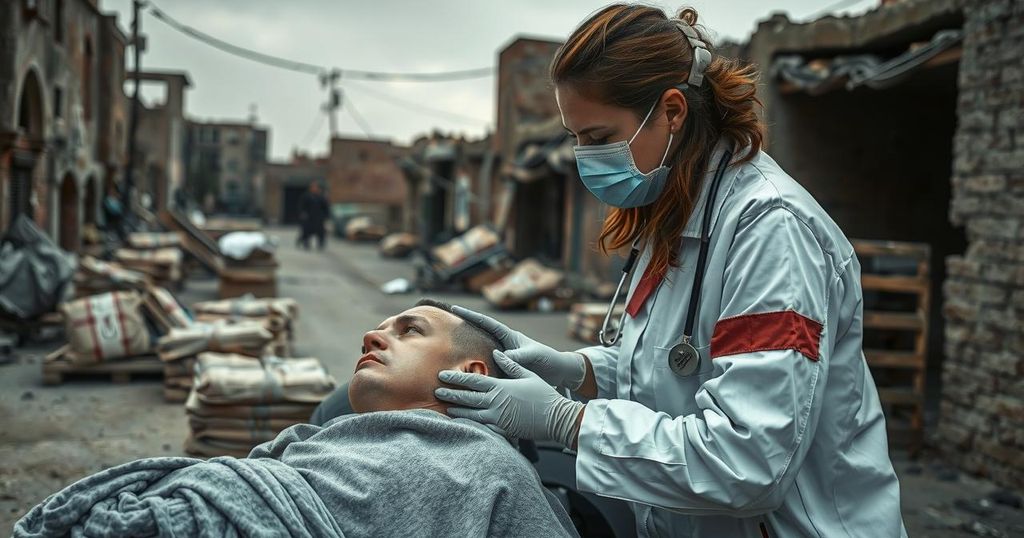Sudan faces a deepening humanitarian crisis, with widespread hunger and healthcare challenges due to the suspension of U.S. aid. Soup kitchens serve as lifelines, especially in urban areas, but their closure due to aid cuts has increased vulnerability. Medical staff like Dr. Jamal Mohammad continue to provide critical care despite dwindling resources, illustrating the profound impact of the ongoing war on everyday life and the urgent need for global support.
In war-ravaged Sudan, hunger permeates every facet of daily life, affecting millions, especially those trapped in conflict zones. Soup kitchens have become essential in cities like Omdurman, with even affluent professionals relying on food handouts as the middle class disappears. Mohammed Hamad, an electrical engineer, expressed the profound impact of the collapsing economy, stating, “We rely on God and aid.”
Hamad’s family receives just one meal a day from a local soup kitchen, a situation he finds heartbreaking. His inability to provide basic necessities, such as food and medicine, exacerbates his family’s struggles. He lamented not even being able to afford transportation for his wife, who was suffering from a lung infection at the time.
U.S. foreign aid has predominantly funded these soup kitchens, but nearly 80% closed after President Trump’s aid suspension. The largest hospital in Omdurman, Al Noa, relies on these kitchens to feed patients and has been severely impacted by the war. Medical staff, led by Dr. Jamal Mohammad, are fighting to deliver care with dwindling supplies amidst ongoing violence and resource shortages.
Dr. Mohammad remarked on the challenges stemming from U.S. aid cuts, stating, “I think it’s going to increase and deepen the suffering of our people. We are the forgotten war.” Former U.S. Ambassador Jesseye Lapenn noted that U.S. support has long been a representation of American values and warned that the sudden withdrawal could foster disrespect for the United States.
Lapenn characterized the misconception surrounding USAID, arguing it functions as a strategic investment rather than mere charity. The discontinuation of U.S. assistance could force countries like Sudan to engage with alternative partners, such as Russia and Iran, who have vested interests in the region’s resources.
The United Nations recently appealed for urgent funding, requesting $6 billion to combat escalating hunger numbers, with the World Food Program warning that humanitarian efforts are critically stretched. Cindy McCain emphasized, “The global community must act now—lives depend on it.”
The staff at the Al Noa hospital, determined to provide care, exemplifies resilience in the face of adversity. Dr. Mohammad, now operating without pay, continues to perform crucial surgeries on the conflict’s victims, including children like 10-year-old Akram Atlan, whose aspirations of playing soccer were threatened by his injuries.
Despite the myriad challenges, Dr. Mohammad remains dedicated to his oath to save lives, embodying hope amid despair. “That’s it. To save lives,” he concluded with unwavering commitment, demonstrating the profound humanity prevailing despite the chaos.
In conclusion, the humanitarian crisis in Sudan, exacerbated by the suspension of U.S. aid, has led to severe hunger and healthcare shortages. Individuals like Mohammed Hamad illustrate the dire conditions many face, while medical professionals such as Dr. Jamal Mohammad strive to save lives under exceptionally challenging circumstances. The importance of continual support through aid is critical to alleviate suffering and bolster the country’s welfare amid ongoing conflict.
Original Source: www.cbsnews.com






